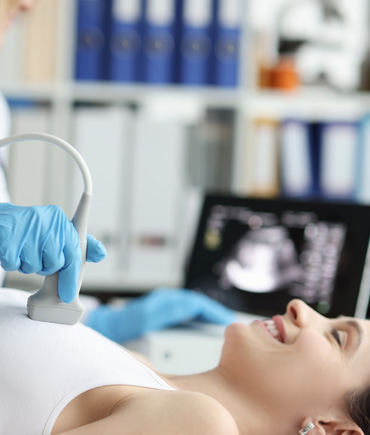Breast cancer is cancer that forms in the cells of the breasts. It is one of the most common cancers diagnosed in women. Several types of tissues are present in the breasts. These include lobules (the glands secreting milk), connective tissue, nipple, ducts, lymph vessels, and blood vessels. One or more cells of these tissues undergo mutation due to multiple factors, such as radiation exposure, leading to uncontrolled growth and cell division. This results in the formation of a tumor. The most common breast cancer types are adenocarcinomas.

Life does not stop when cancer strikes.
We are with you in this fight to win over cancer. We are here to give you the strength to recover through a comprehensive cancer care program.
